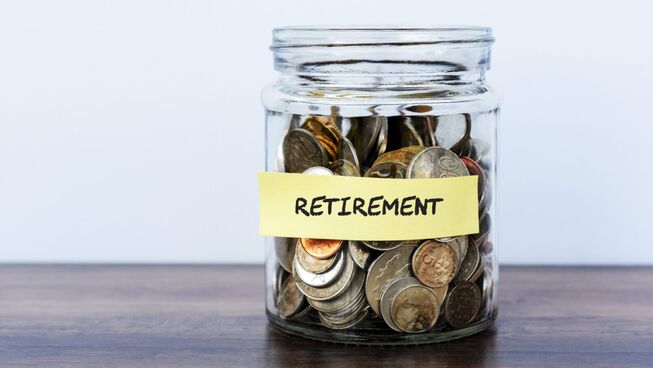Should you trust in your Superannuation scheme?

Does God want you so to trust him that you do not take out any insurance? Is compulsory superannuation a way in which government has interfered in God’s plan for the role of private charity?
There are a few clues in the New Testament that suggest otherwise.
Firstly, we can see that trusting in God’s provision does not mean doing nothing. St Paul trusts that the gospel is being made known in all the world, but emphasises that he strives to take it further. Jesus tells us not to worry about food and clothing, but there is no suggestion that there is no need for those who fish or make furniture and tents – as Jesus and the apostles did.
Second, one of the strongest biblical messages is that God is concerned for the poor. As James has it: “What God the Father considers to be pure and genuine religion is this: to take care of orphans and widows in their suffering and to keep oneself from being corrupted by the world.”
Thirdly: we see that the church created institutional structures to provide for the needy. Right at the beginning of the church in Jerusalem, there is a system for providing food – daily – to the poor. There is an intriguing reference to “tables”, which could mean that people were eating at the tables, but an alternative interpretation is that it means written tables (spreadsheets perhaps) that listed those who were supplied with food.
The apostles selected seven deacons, who were “full of the Spirit and wisdom” to do the job, which was to ensure that different groups of widows were fairly treated. It seems that they were involved in decisions about who was to be supplied, rather than the practical task of food preparation and service - so the spreadsheet interpretation seems more likely.
To confirm this, perhaps thirty years or so later, Paul writes to Timothy about providing support to elderly widows. He says that they should be “enrolled” if they have reached the “retirement age” of 60. The roll would be their database of beneficiaries.
One interesting point here is that the widows are to be supported if they have contributed to the community previously. This echoes Paul’s other point that “those who will not work, should not eat.” There is an expectation that everyone will play their part, and that we all will, in some respects, “reap what we sow.” I think it suggests that we should – if possible – contribute to our own retirement, and to our own insurance benefits. Otherwise we are potentially a burden on our family and friends in the first instance, or the community more broadly.
Therefore, the first Christian community had its own welfare structures based on communal care.
This leads to the question as to how we respond to institutional structures such as superannuation. I think it is clear that they are governed by authorities whose role we should accept. In particular, we are urged to pay taxes, which can be seen to include compulsory superannuation contributions.
This does not however mean that authorities are above criticism or reform, and even passive resistance if they go beyond their proper limits. Here we have the principles of justice and mercy, which apply to the use of power – and reflect, we are told, the character of God.
I think that all these relatively concrete and clear pointers can be derived from the bible, and reflect God’s plan for us and his world. The debates begin when we apply them to the Australian Age Pension and superannuation systems.
Opinion: What's wrong with the Age Pension and Superannuation Systems?
The Age Pension system is failing poorer pensioners who do not own their own houses, and rental assistance needs to double at least. I also think that the asset test is too complicated and unfair and creates unnecessary uncertainty amongst pensioners. It should be merged with the income test.
The superannuation system is dominated by professionals from the financial sector, who are sometimes unfairly over servicing and overcharging members. I would like to see trustees who were democratically elected and more and smaller funds with closer ties to the members. I would also like to see trustees offering lifetime income streams and more helpful financial advice to their members.
How can Christians improve the system and the outcomes for elderly people? Why should we work to improve the lot of the elderly and/or dependant in society? Proverbs 31:8-9 says: "Speak up for those who cannot speak for themselves, for the rights of all who are destitute. Speak up and judge fairly; defend the rights of the poor and needy"
I have found that there are opportunities to influence regulation through direct representations, contributions through professional or industry bodies or through the media. Working at a university or for think tanks also helps. An alternative is to become directly involved with political parties. Opportunities are more frequent for those who volunteer to serve in one way or other.
Whatever organisations we work for, our daily tasks give us many opportunities to love those with whom we deal with directly. We can also think of those who have to deal with the structures to which we have contributed. Can we make the forms simpler, have the telephone calls answered promptly, keep the costs down, make the investments more productive?
As we consider our own superannuation let us keep in mind God's concern for the poor and vulnerable and ensure that feeds into our own personal practices, but also where we have opportunity, advocate or seek to change.
Photo by Anna Shvets from Pexels






